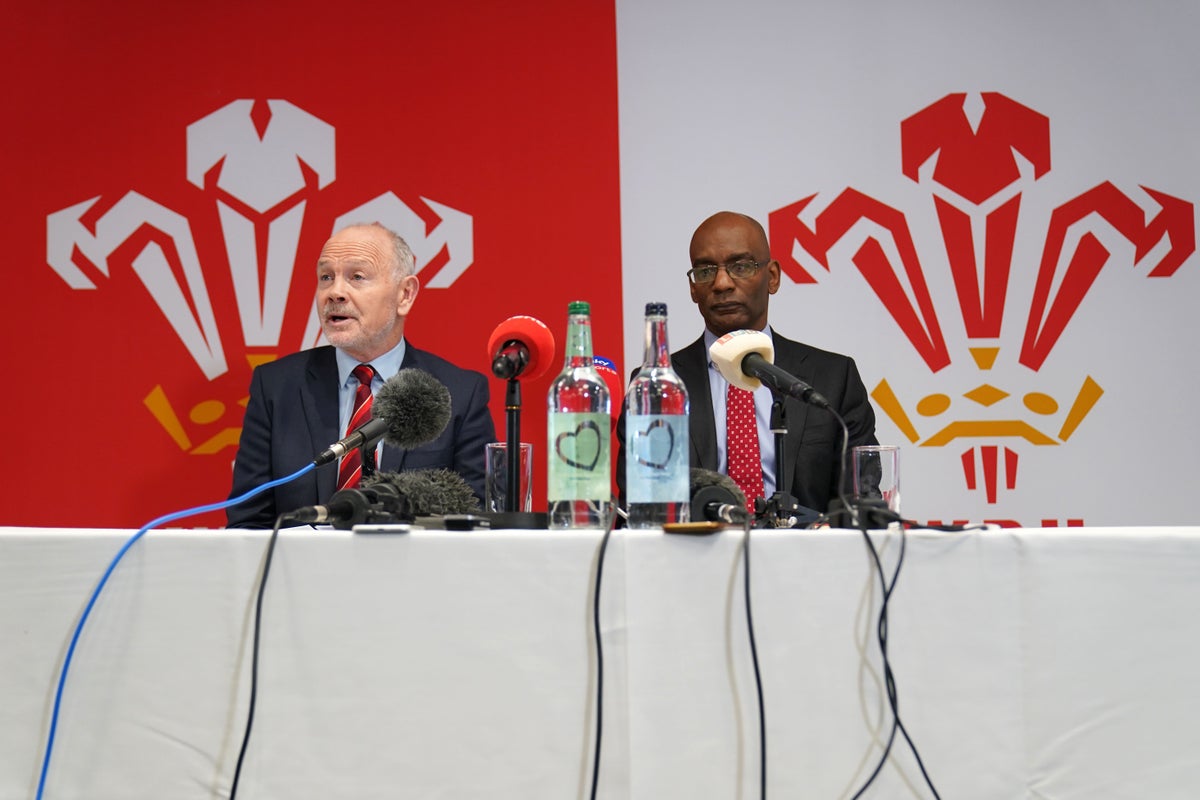
Welsh Rugby Union chiefs have admitted being in “denial” over the extent of sexism and misogyny in the organisation and said warning signs were missed.
Chairman Ieuan Evans and acting chief executive Nigel Walker appeared before the Senedd’s Culture, Communications, Welsh Language, Sport and International Relations Committee on Thursday.
They were called to give evidence after serious allegations were aired in a programme by BBC Wales Investigates last week, which have rocked the WRU.
The union’s chief executive, Steve Phillips, stepped down at the weekend and it was announced that an external taskforce has been asked to carry out an independent review.
Evans and Walker apologised to members and said they accepted there was a problem in the culture of the WRU and were committed to implementing all of the recommendations made by the taskforce.
The name of the chair and the scope of the review is to published this week, Walker said. He revealed the independent chair is a woman who has worked in the judiciary.
Asked if WRU staff members who had been made to sign non-disclosure agreements (NDAs) would be allowed to give evidence as witnesses to the review, Walker said he would “look to facilitate it to make sure they can be interviewed”.
However, he said they were unaware currently of how many people had signed NDAs.
Walker said: “I think in any organisation, especially a large organisation like the Welsh Rugby Union, it’s possible for things to happen over a period of time and for people to turn a blind eye and not to address those problems.”
“So the warning signs have been there for quite some time.
To be candid, I think as an organisation we’ve been in denial as to the extent of the problem.— WRU acting chief executive Nigel Walker
“When it’s presented as graphically as it was during that programme, the BBC Wales programme the week before last, it hits you like a 10-tonne truck.”
Walker added: “To be candid, I think as an organisation we’ve been in denial as to the extent of the problem.
“There have been cases in the past which have been dealt with – in theory dealt with – and people have moved on, and I think each individual case is an indication that there has been a wider problem, but that people have not joined the dots.
“When you see it presented over a 30-minute programme in the way that it was, unless you’re going to bury your head in the sand for another six months or 12 months you have to take action and that’s the position we’re in.
“None of us are proud of the position we’re in.”
Walker said London-based arbitration company Sports Resolution has been asked to set up the review but it will be the responsibility of the chairwoman to choose the other members of the panel, of which there will be three or four people.
Terms of reference have been set by Sports Resolution and Sports Wales in discussion with the Welsh Government and the WRU. Walker confirmed the review’s report and recommendations would be made public.
“It will look at the culture of Welsh rugby, including sexism and misogyny, going back to 2017 but could go further back,” Walker said.
“We are opening our doors. The review can take any direction the chair wants it to take.”
Jenny Rathbone MS, of Welsh Labour, questioned whether the WRU board had the “capacity” to change given the issues that had been “rife” within the organisation for “so long”.
Evans and Walker denied being aware of the wider culture of misogyny and both said they had not personally witnessed incidents of sexism or discrimination.
They confirmed no board member had been disciplined over claims.
Walker said he had “no objection” to a redacted version of the 2021 women’s rugby review being published but said conversations were still on going about doing that.
He said the report would make “uncomfortable” reading for those involved in the WRU.
Sports minister Dawn Bowden was also questioned over when the Welsh Government were made aware of allegations.
Bowden said she was aware of claims over sexism and misogyny in the WRU last year but had not seen any formal complaints, saying: “I did what I could.”
Labour MP Tonia Antoniazzi, who appeared in the BBC documentary, said she wrote to Bowden last year setting out her concerns.







